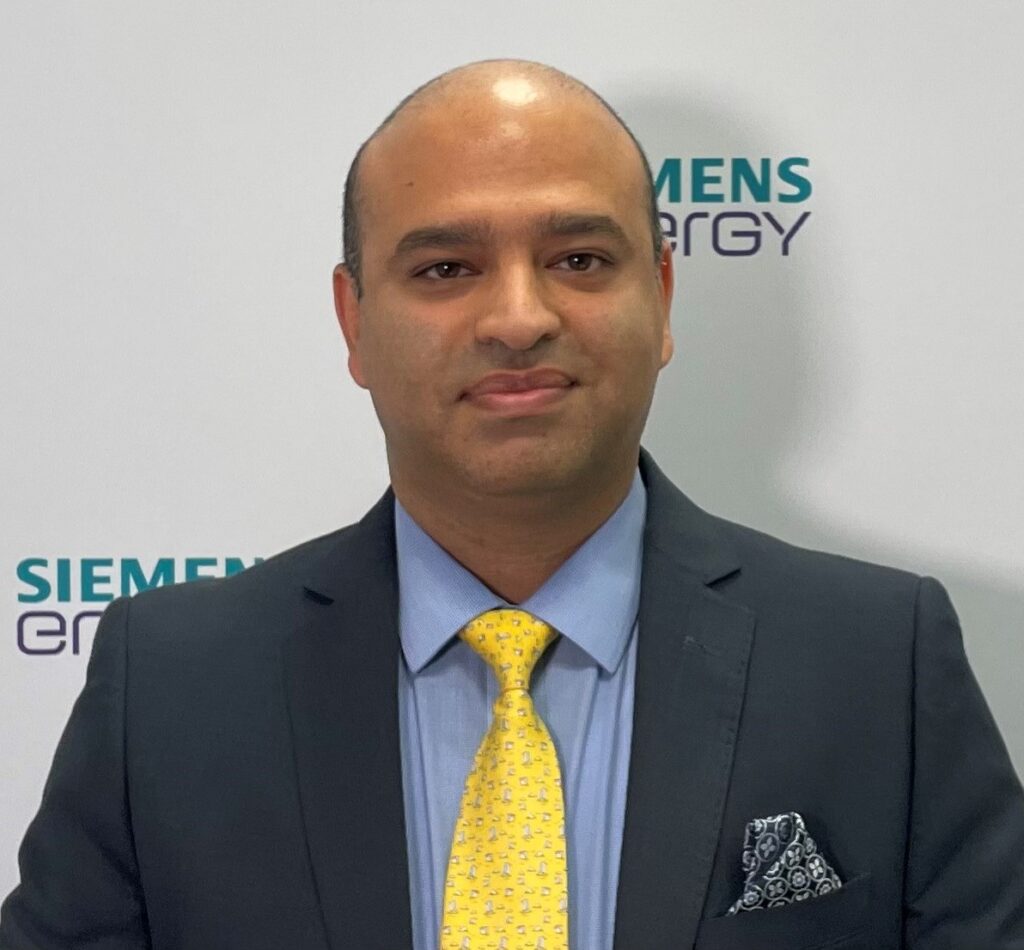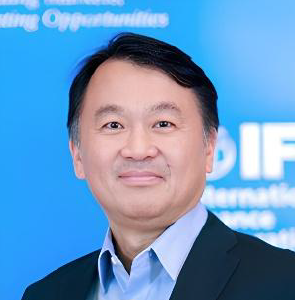Bold finance. Just transition. Unlocking global opportunity.
On June 5th, 2025, the Net-Zero Industries Mission (NIM), in cooperation with the Alliance for Industry Decarbonisation (AFID)*, hosted the global webinar “Financing the Green Shift: Unlocking Climate Capital for Emerging Markets.” The session brought together 72 participants from around the world and featured five expert speakers tackling a central question: How can we scale climate finance to decarbonise heavy industries in emerging and developing economies (EMDEs)?
Opening and Framing the Challenge
The event commenced with opening remarks from Urban Peyker, Director of the Net-Zero Industries Mission, who highlighted the urgency of action in high-emission sectors, which currently account for 25% of global greenhouse gas emissions. He outlined NIM’s ambition to drive rapid, large-scale industrial transformation, with a concrete goal of implementing over 50 demonstration projects by 2030 to showcase scalable decarbonisation pathways.
Begonia Gutierrez Figueroa, Associate Professional for Industry Decarbonisation at IRENA, welcomed participants on behalf of AFID – The Alliance for Industry Decarbonisation. She emphasized AFID’s role as a catalyst for change—convening public and private actors to accelerate the transition of heavy industries. Through technical guidance, financing dialogues, and global cooperation, AFID supports inclusive and effective decarbonisation aligned with the Paris goals. To apply to become a member of the Alliance for Industry Decarbonization, please email to afid@irena.org.
The Financial Imperative
Kicking off the expert panel, Maysam Kanani Amiri, Senior Advisor at Siemens Energy LLC, presented a compelling overview of the current financing landscape. Despite the growth of global climate finance, only 15% reaches EMDEs, where the need is most acute. Amiri cited systemic barriers: high upfront costs, increased risk perception, inflation, and persistent supply chain challenges. He underscored the importance of de-risking mechanisms, long-term concessional loans, and public-sector tools such as tax incentives, green off-take agreements, and dedicated demonstration funds. In particular, sectors like green hydrogen could benefit greatly from targeted financial innovation and stronger institutional support.
Policy Architecture and Institutional Alignment
Minh Hien Tran, Senior Advisor at the United Nations Industrial Development Organization (UNIDO), highlighted the structural deficiencies in current climate finance delivery for EMDEs. Drawing on OECD data (2024), she outlined key barriers faced by international financial institutions: market and currency risks, lack of bankable projects, and policy fragmentation. To overcome these challenges, Tran advocated for a multi-level policy approach: strengthening Nationally Determined Contributions (NDCs), developing sectoral decarbonisation roadmaps, and building coherent regulatory and eligibility frameworks. She also noted the rising importance of institutional investors, who could play a transformative role—if supported by a globally coordinated technical and financial assistance landscape.
Blended Finance and Market Opportunity
From a development finance perspective, Tuyen D. Nguyen, Global Lead at the International Finance Corporation (IFC), stressed that while global markets are navigating uncertainty, corporate commitment to science-based targets and net-zero goals remains robust. IFC, he noted, is focused on structuring solutions that de-risk private capital and enable scale. Nguyen reaffirmed that blended finance is a cornerstone for unlocking capital in EMDEs. He identified core challenges—limited fiscal space, technology risk, and regulatory complexity—but also key opportunities: abundant renewable potential, growing energy demand, and job creation, particularly in price-sensitive sectors like fertilisers.
Building Trust through Standards and Digitalisation
Representing the IRENA/AFID Green Finance Working Group, Bratin Roy (TÜV Süd) brought the essential lens of standardisation and certification. He emphasised that credible assurance processes—covering audit, monitoring, and verification—are vital to building trust among investors and ensuring the integrity of green finance. However, he also flagged a major gap: most sustainability standards are tailored to G20 economies, leaving EMDE-specific reporting needs underserved. Roy advocated for accessible, context-sensitive reporting tools and highlighted digitalisation as a key enabler—providing real-time, transparent data streams that boost investor confidence and improve carbon market performance.
Toolkits for Action
Joseph Cordonnier, Policy Analyst at the OECD, introduced the OECD’s Financial Toolkit—a practical resource for designing effective financial and technical assistance schemes. The toolkit responds to direct requests from EMDEs via the Climate Club’s Global Matchmaking Platform (GMP) and helps users select from 28 de-risking and financing instruments tailored to hard-to-abate sectors. Beyond tool selection, the resource provides economic assessments and real-world case studies, enabling both policymakers and project developers to align investments with national climate strategies and global decarbonisation pathways.
Outlook
The webinar concluded with a dynamic panel discussion, reinforcing key messages: the need to de-risk climate investments, tailor strategies to regional contexts, and scale blended finance through strong public-private partnerships. Despite the scale of the challenge, the session underscored a clear opportunity: through innovation, collaboration, and strategic financial design, the industrial transition in EMDEs can be accelerated—driving both global decarbonisation and sustainable development.
Presentations
- Welcome note and introduction Net-Zero Industries Mission
Urban Peyker, NIM Mission Director - Welcome note and introduction AFID – The Alliance for Industry Decarbonization
Begonia Gutierrez Figueroa, Associate Professional for Industry Decarbonisation, International Renewable Energy Agency (IRENA) - Financing the Energy Transition in Industrial Sectors
Maysam Kanani Amiri, Senior Advisor, Treasury & Corporate Finance MEA, Siemens Energy LLC - Strategic Finance for Sustainable Industry in Emerging Markets
Hien Minh Tran, Climate Finance Officer, United Nations Industrial Development Organization (UNIDO) - Scaling private sector investment in industrial decarbonization across emerging markets
Tuyen D. Nguyen, Global Lead for the Climate Business Department, International Finance Corporation (IFC) - Closing the Trust Gap to De-Risk Climate Investments
Bratin Roy, Chair of AFID Green Financing WG, Global Head of Decarbonization, TÜV SÜD - OECD’s new Financial Toolkit for Financing Industry Decarbonisation
Joseph Cordonnier, Policy Analyst, Organisation for Economic Co-operation and Development (OECD) - Moderation: Dr Alan Monaghan, Mission Coordinator Net-Zero Industries Mission
* The Alliance for Industry Decarbonization (AFID) is a global, multi-stakeholder platform coordinated by the International Renewable Energy Agency (IRENA). Established in 2022 to accelerate the decarbonization of industrial value chains, AFID brings together public and private entities across energy-intensive sectors to foster collaboration, share best practices, and drive the adoption of renewable energy solutions in alignment with the Paris Agreement.
The objective of the Alliance is to facilitate dialogue on industry level and increase cooperation to help companies to develop solid decarbonization strategies and implementation plans, aligned with their countries’ net-zero and decarbonization commitments. The Alliance serves as a global platform for enhancing dialogue through exchange of insights, experiences, and best practices.
Speakers
Urban Peyker, NIM Mission Director, Head of Industry, Enterprise and Financing, Climate and Energy Fund, Austria

Urban Peyker is the Head of the Industry, Enterprise, and Financing department at the Austrian Climate and Energy Fund. He leads initiatives to promote sustainable industrial practices and drive Austria’s transition to clean energy. Previously, he managed programs on Smart Grids, Hydrogen and Industrial Decarbonisation at the Austrian Research Promotion Agency (FFG). He has also worked as an energy efficiency consultant and as an energy market analyst. Peyker plays a key role in funding and supporting projects that enhance energy efficiency, sustainability, and climate innovation. His leadership contributes significantly to Austria’s climate goals and the advancement of green technologies.
Begonia Gutierrez Figueroa, Associate Professional for Industry Decarbonization, International Renewable Energy Agency (IRENA)

Begonia Gutierrez Figueroa is an Associate Professional for Industry Decarbonization at the International Renewable Energy Agency (IRENA) since 2024. She supports the partnerships work stream in IRENA, focusing on multistakeholder platforms such as the Alliance for Industry Decarbonization (AFID) and the Utilities for Net Zero Alliance (UNEZA). Prior to joining IRENA she worked as a Program Associate at UNEP Copenhagen Climate Center, a leading advisory institution on energy, climate and sustainable development. She is an economist and holds a MSc degree in Environmental Economics from Copenhagen University, Denmark.
Maysam Kanani Amiri, Senior Advisor, Treasury & Corporate Finance MEA, Siemens Energy LLC

Maysam Kanani Amiri is a distinguished senior member of Siemens Energy’s Treasury and Corporate Finance organization in the Middle East & Africa region. With over 13 years of dedicated service to the group, Maysam has established himself as a seasoned finance professional and leader, specializing in treasury and financing with a particular focus on project and export finance.
Maysam brings approximately 10 years of concentrated experience in export and structured finance within the MEA region, complemented by his expertise in treasury and trade finance. His career at Siemens Energy began in 2013, and before then, he held various senior positions in financial planning and analysis, controlling, audit and assurance, and advisory roles.
Hien Minh Tran, Climate Finance Officer, United Nations Industrial Development Organization (UNIDO)

Hien M. Tran is a climate finance specialist with a track record of mobilizing capital for climate and environmental projects and advancing sustainable finance across emerging markets. At the United Nations Industrial Development Organization (UNIDO), she works on the topic of mobilizing finance for NDCs and industry decarbonization projects via innovative financial instruments, develops project pipelines in emerging markets, and coordinates technical assistance programs to unlock investment. Previously at the Global Green Growth Institute, she pioneered innovative financial instruments such as thematic and green bonds and blended finance. She was instrumental in facilitating the first local-currency corporate green bond transactions—including a $75 million issuance in financial institution—and contributed to the first aquaculture green bond on Vietnam market.
Tuyen D. Nguyen, Global Lead, Climate Business Department, International Finance Corporation (IFC), World Bank Group

Tuyen D. Nguyen is the Global Lead for the Climate Business Department at the International Finance Corporation (IFC), based in Washington, D.C. Tuyen leads global initiatives on climate advisory, investment mobilization, and specialized programs such as eco-industrial park (EIP) certification, green hydrogen, climate trade and supply chain finance, and methane reduction. Most recently, Tuyen was the Advisory Regional Lead for Asia Pacific in IFC’s Manufacturing, Agribusiness, and Services (MAS) Department. With extensive leadership experience across Asia Pacific, Tuyen has held several prominent roles such as the IFC Resident Representative in Mongolia and the Head of Office in Ho Chi Minh City and MAS investment lead for the Mekong Region.
Bratin Roy, Global Head of Decarbonization at TÜV SÜD AG, Chair of the Green Financing Working Group at IRENA

Bratin Roy is the Global Head of Decarbonisation at TÜV SÜD AG, a global leader in sustainability verification, testing, inspection and certification. He leads worldwide decarbonisation and sustainability initiatives across five geographical regions with nearly two decades of experience at TÜV SÜD, establishing himself as a thought leader in climate action, energy transition, and corporate sustainability.
Roy serves as Chair for IRENA’s Green Finance Working Group, leading cross-sector discussions on unlocking green financing for small-to-medium enterprises and projects in emerging and developing markets. His expertise spans carbon management, renewable energy, emerging technologies including hydrogen and ammonia deployment, green buildings certification, and sustainable resource management systems.
Joseph Cordonnier, Policy Analyst, Organisation for Economic Co-operation and Development (OECD)

Joseph Cordonnier works at the Organisation for Economic Co-operation and Development (OECD), in the Environment Directorate. In his current role, he supports the development of policy measures and financial instruments to scale up investment in industry decarbonisation and clean hydrogen in emerging economies. He has notably co-authored the OECD Framework for industry’s net-zero transition, the Climate Club Financial Toolkit and the reports Green hydrogen opportunities for emerging and developing economies, Scaling Hydrogen for Development and Leveraging De-Risking Instruments and International Co-ordination to Catalyse Investment in Clean Hydrogen. Before joining the OECD, he has worked for 10 years in the energy and heavy industry sectors, focusing on market analysis, business development, decarbonisation roadmaps and strategy.
Moderator
Dr Alan Monaghan, NIM Mission Coordinator

Dr Alan Monaghan, Global Mission Coordinator of the Net-Zero Industries Mission, is a physicist, specialising in developing and delivering executive level strategy and change programs, from organisational restructures and project delivery capability establishment, through to the special risk management needed for technology development, implementation and commercialisation. He is currently the Senior Vice President of the global Technology & Expert Solutions team for Worley’s Resources sector, where Worley’s global SME pool is engaged to provide high priority customer solutions, across innovation and solution validation, through to project delivery, including leading their First of a Kind technology delivery and external technology partnership programs.

